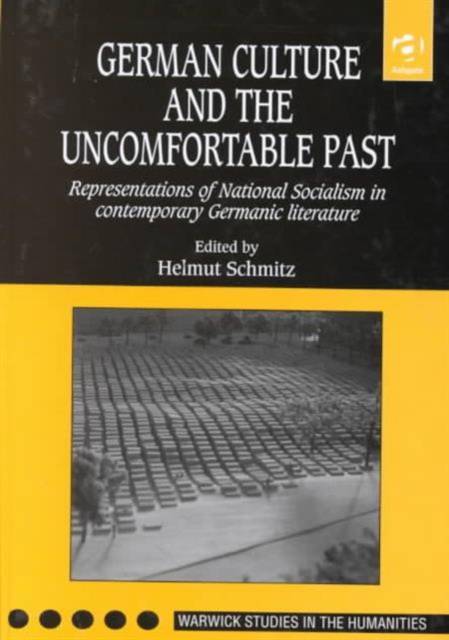
- Afhalen na 1 uur in een winkel met voorraad
- Gratis thuislevering in België vanaf € 30
- Ruim aanbod met 7 miljoen producten
- Afhalen na 1 uur in een winkel met voorraad
- Gratis thuislevering in België vanaf € 30
- Ruim aanbod met 7 miljoen producten
Zoeken
German Culture and the Uncomfortable Past
Representations of National Socialism in Contemporary Germanic Literature
€ 47,45
+ 94 punten
Omschrijving
Beginning with the question of the role of the past in the shaping of a contemporary identity, this volumes spans three generations of German and Austrian writers and explores changes and shifts in the aesthetics of Vergangenheitsbewältigung (coming to terms with the past). The purpose of the book is to assess contemporary German literary representations of National Socialism in a wider context of these current debates. The contributors address questions arising from a shift over the last decade, triggered by a generation change-questions of personal and national identity in Germany and Austria, and the aesthetics of memory. One of the central questions that emerges in relation to the Hitler youth generation is that of biography, as examined through GÃ1/4nter Grass' and Martin Walser's conflicting views on the subject of National Socialism. Other themes explored here are the conflict between the post-war generations and the contributions of that conflict to (West)-German mentality, and the growing historical distance and its influence on the aesthetics of representation.
Specificaties
Betrokkenen
- Uitgeverij:
Inhoud
- Aantal bladzijden:
- 192
- Taal:
- Engels
- Reeks:
Eigenschappen
- Productcode (EAN):
- 9780754601128
- Verschijningsdatum:
- 28/05/2001
- Uitvoering:
- Hardcover
- Formaat:
- Genaaid
- Afmetingen:
- 152 mm x 219 mm
- Gewicht:
- 394 g

Alleen bij Standaard Boekhandel
+ 94 punten op je klantenkaart van Standaard Boekhandel
Beoordelingen
We publiceren alleen reviews die voldoen aan de voorwaarden voor reviews. Bekijk onze voorwaarden voor reviews.










